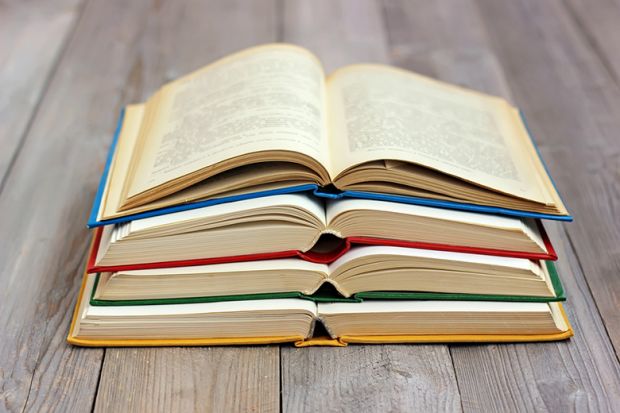In an innovative piece of recent research, Leibniz University of Hanover scholar Hartmut Ilsemann ran Shakespeare’s plays through a computer program. He found that when the Globe Theatre opened in 1599, the median length of speeches dropped from about ten words to about five.
Shakespeare is not around to complain about his works being data-mined like this, but what if I ran such tests on the writing of living historians? Would that be a proper use of their writing? Not according to the renowned digital humanist Marilyn Deegan. For her, data-mining is no way to treat monographs that are “creative works in their own right”. Their “carefully crafted arguments”, she argues, should not be subject to “atomisation and appropriation by others” (“Open access monograph dash could lead us off a cliff”, Opinion, July 27).
It is hard not to conclude that, in essence, Deegan is objecting not so much to open access principles as the condition of writing itself. There is simply no way for authors to control what happens once their works are launched into the wider world of readers. The author cannot be present everywhere to police how a text is consumed. Jonathan Swift (who is dead) cannot prevent undergraduates taking A Modest Proposal literally, any more than Rob Reiner (who is alive) can prevent audiences taking This is Spinal Tap for a documentary. Those are the hazards of creativity.
For advocates of open access, the overriding principle is that public servants whose contracts give them time to write are, by virtue of being paid to do it, no longer the owners of that writing. No tax inspector or police officer can claim ownership of what they write for their jobs, so why should academics?
Certainly, academics have considerable freedom to choose their own topics, and their writing is more “authored” than that of other public servants, which is typically anonymous. Even here, though, practice varies. Beeching, Dearing, Chilcot and Stern are certainly treated as the authors of their landmark reports for the UK government on, respectively, the railways, higher education, the Iraq War and climate change. Yet no one would argue that these reports were their authors' personal property, to do with as they saw fit.
If university academics feel this way, they need to make that case explicitly. They must explain why is not unjust that, collectively, our universities pay their employees to write books and then have to buy the same books back from publishers in order to stock their libraries. Academics may well feel that they have to play this game for the sake of career advancement, but that is no reason to defend the status quo in academic publishing.
Faced with these arguments, the opponents of open access usually fall back on one last defence: that academics write their books in their own time, not their university's. This certainly happens: ours is a profession in which much unpaid overtime is done in the evenings and at weekends. But, really, that is a separate fight. If we call this “overtime”, as the UK's University and College Union does, we are acknowledging that book writing is part of our contracted work, not a leisure activity. Only academics who have no research hours at all specified in their contracts can truthfully claim that their books are made entirely in their own time and hence are their own private property. Everyone else should acknowledge that the public pays for our works and should therefore not have to pay again to read them.
Aside from all else, there is an unassailable argument in favour of open access monographs from a global rights perspective. More research will get done more efficiently when all the raw materials for doing it are available for free on the internet, which (unlike research libraries) can now be accessed by more than half the world's population.
Who knows how many potential Deegans and Egans never got a chance to change people’s minds because they were born in the wrong part of the world?
Gabriel Egan is professor of Shakespeare studies and director of the Centre for Textual Studies at De Montfort University.
POSTSCRIPT:
Print headline: To pen it is not to own it
Register to continue
Why register?
- Registration is free and only takes a moment
- Once registered, you can read 3 articles a month
- Sign up for our newsletter
Subscribe
Or subscribe for unlimited access to:
- Unlimited access to news, views, insights & reviews
- Digital editions
- Digital access to THE’s university and college rankings analysis
Already registered or a current subscriber? Login






